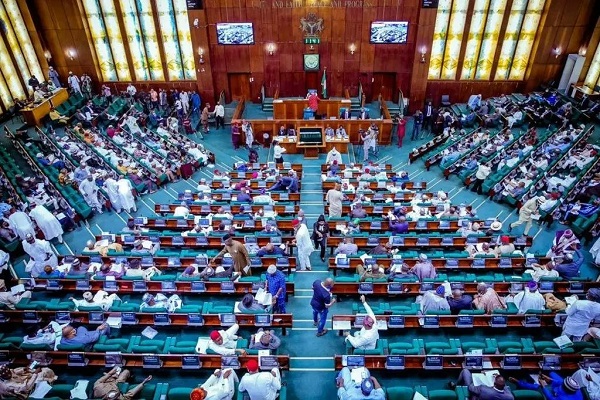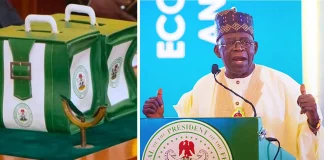🌿 Ruzu Non-Alcoholic Herbal Bitters
Ruzu Non-Alcoholic Herbal Bitters is a natural health supplement specially formulated to:
- ✅ Promote general wellness
- ✅ Detoxify the body
- ✅ Support the treatment of various ailments
Made from a powerful blend of 100% organic and medicinal herbs, Ruzu is completely alcohol-free, making it ideal for:
- 👪 All age groups
- 🌱 Health-conscious individuals
- 🌿 Anyone seeking non-alcoholic herbal remedies
Whether you're looking to boost your vitality, cleanse your system, or support healing the natural way, Ruzu Bitters offers a trusted herbal solution.
Four major tax reform proposals were discussed and approved by the House of Representatives on Thursday following a comprehensive clause-by-clause examination in the Committee of the Whole, which was chaired by Speaker Abbas Tajudeen.
Now that the consent has been obtained, the legislation will be read a third time on the next legislative day before being passed into law.
The committee in charge of the reports settled the majority of the controversial clauses that had previously generated discussion, according to Daily Trust, guaranteeing a seamless adoption procedure.
The distribution formula for Value Added Tax (VAT), which was first proposed by the Nigerian Governors’ Forum (NGF), was one of the important provisions that were examined and approved. It now utilizes a structure of 50% based on equality, 20% on population, and 30% on consumption.
A gradual increase in VAT rates was also rejected by the House, which decided to keep the current 7.5% rate in place.
Furthermore, in order to steer clear of controversy, MPs decided to substitute the word “religious” for “ecclesiastical” in one of the sentences.
Adopting development levies to provide ongoing finance for organizations like TETFUND, NASENI, and NITDA was another crucial choice.
To make it clear that inheritance received before to dissolution is not subject to taxation, the controversial inheritance tax section was also modified.
One plan for tax reform that was approved by the House is HB.1756, which would prescribe the powers and functions of tax authorities and provide for the assessment, collection, and accounting of revenue accruing to the federal, state, local, and federal governments.
Read Also: South-South Congress Didn’t Take Place – PDP Rejects Wike’s Faction’s Claims
2. A Bill for an Act to Establish the Nigeria Revenue Service, Charged with the Authority to Assess, Collect, and Account for Revenue Due to the Government of the Federation, and to Repeal the Federal Inland Revenue Service (Establishment) Act, No.13, 2007 and to Enact the Nigeria Revenue Service (Establishment) Bill (HB.1757).
3. A Bill for an Act to Establish the Office of the Tax Ombud, the Tax Appeal Tribunal, and the Joint Revenue Board for the Harmonization, Coordination, and Settlement of Tax Administration Disputes in Nigeria, and for Related Matters (HB.1758).
4. The Nigeria Tax Act to Provide for the Taxation of Income, Transactions, and Instruments, and for Related Matters, is a bill to repeal certain taxation acts and consolidate the legal frameworks pertaining to taxes (HB.1759).
















